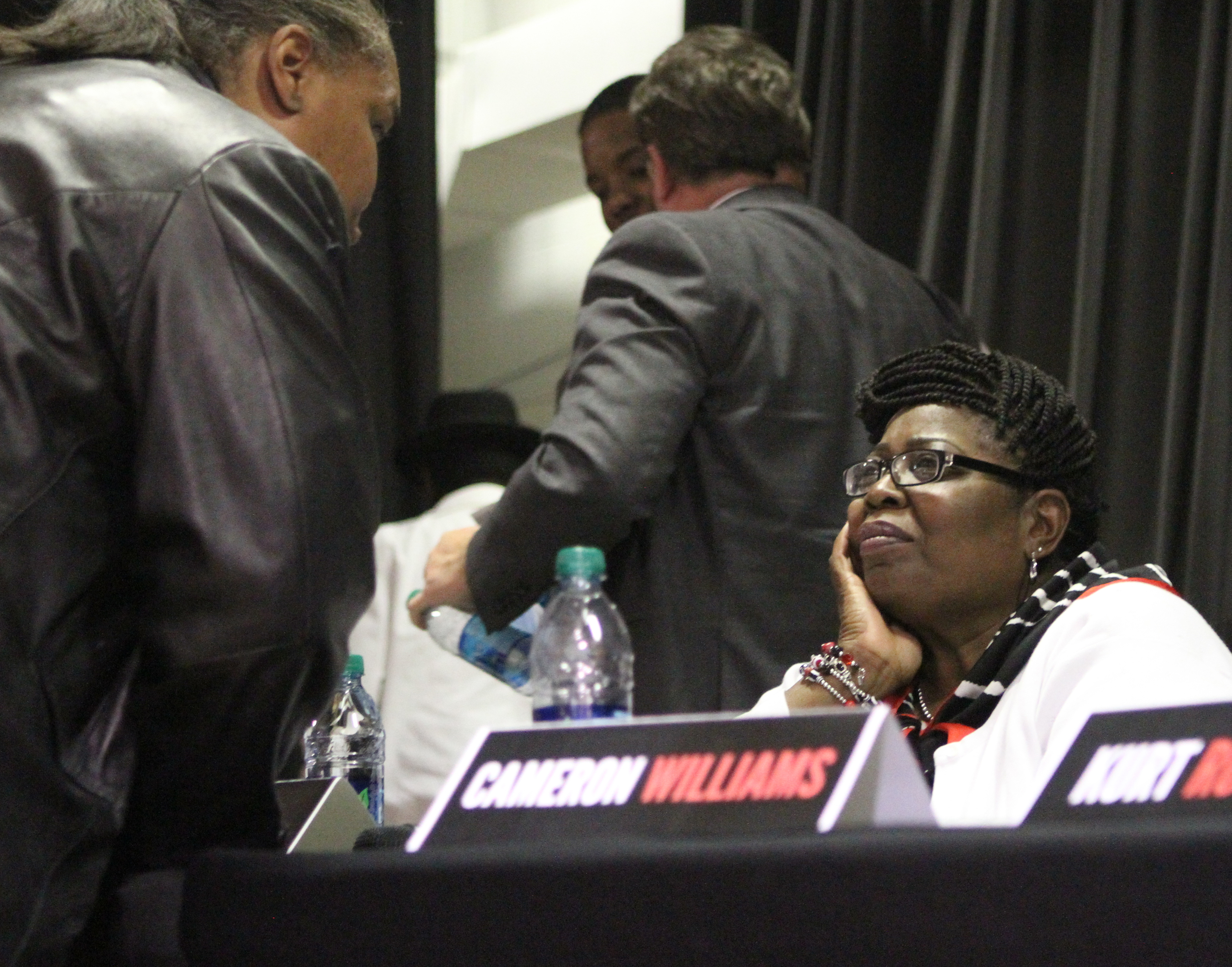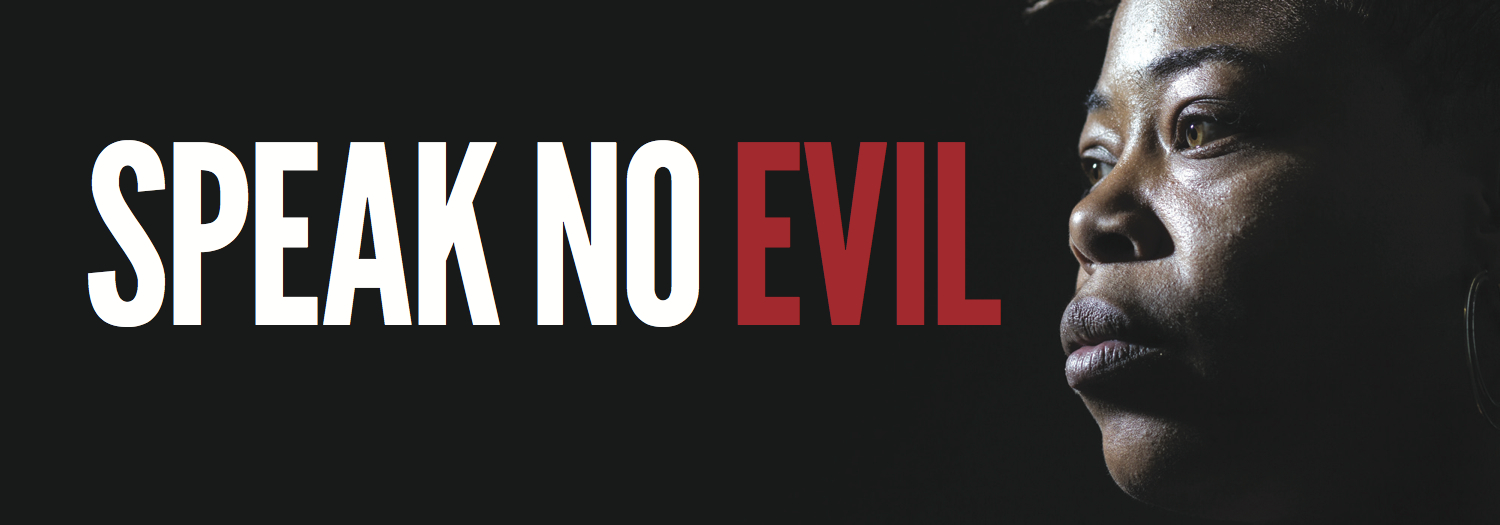Read moreSpeak No EvilPassions run high: Forum on crime elicits hurt, anger in black community (with video)
Minority communities in almost every city have adversarial relations with cops and the courts.
High Point, N.C., was no exception. Nearly 20 years ago, when a new violence reduction initiative began there, blacks were angry and skeptical.
Now it's Chattanooga's turn.
With an eye on the program that has reduced youth homicides by up to two-thirds in some cities, Mayor Andy Berke has pledged to re-create here what is known in North Carolina as the High Point Initiative.
But local black leaders and community members say they don't want the strategy in Chattanooga.
Some, including NAACP President James Mapp, local Nation of Islam representative Kevin Muhammad and members of Concerned Citizens for Justice call it a racist, out-of-town idea that won't work.
At a Dec. 19 forum hosted by the Chattanooga Times Free Press intended to discuss the community's code of silence, its relationship with police and the new violence reduction strategy, attendees questioned the mayor's motives.
Muhammad said the mayor doesn't care about blacks, only about improving his ability to recruit businesses to the city. His statements were cheered by many in the crowd of more than 200. Some nonprofit workers said they were offended that Berke would seek outsiders' opinions about the problem of inner-city violence without engaging workers on the ground.
Some speakers expressed frustration about what they called the mayor's lack of transparency. Berke's most recent update on the violence reduction strategy several weeks ago was made before an invitation-only crowd.
A press release sent out by local activist group Concerned Citizens for Justice explained the initiative this way: "The Chattanooga Violence Reduction Initiative is an extension of the failed 'War on Drugs' that has devastated black communities instead of addressing the systemic roots of crime -- poverty resulting from a wholly unequal and unjust economic system with firm roots in white supremacy."
The initiative will mean roundups of blacks -- similar to the recent roundup of 32 black men -- who will be asked to snitch on their associates, the press release went on to say.
But those who have seen the system operate in cities across the country say the success stories eventually will win locals over.
Antoine Curtis grew up angry in Little Chicago on High Point's south side. His mother was abused; Curtis was just 12 when he shot and wounded the man who hit her. Curtis didn't get caught, though, and by 13, he said he was selling crack. He said he hated police.
"I told myself, 'Never let nothing happen again to her,'" he said in an interview in August. "I hung out with kids older than me. I got my hands on guns. I made sure everyone knew not to try me. ... In my eyes I was a grown man."
But after being singled out in High Point as a repeat violent offender, he was offered a choice that would alter his thinking.
•••
Advocates say mistrustful residents shouldn't miss the main point.
"It works," said the Rev. Jim Summey, executive director of the High Point Community Against Violence, a nonprofit that has helped High Point police employ the strategy in North Carolina.
"I've seen more results from this than from pastoring," Summey said.
Berke's strategy is modeled on a form of policing called focused deterrence or pulling levers, which launched in Boston during the 1990s. The approach, dubbed the Boston Miracle at the time, reduced rising youth homicides by 63 percent, research shows. The program has since been employed in more than 50 cities, where similar results were found.
In Indianapolis homicide fell 34 percent. In Stockton, Calif., gun homicide fell 42 percent. In Cincinnati, gang member-involved homicide dipped 41 percent, according to the National Network for Safe Communities, a group that promotes pulling levers strategies. Last year an independent review published by the U.S. Department of Justice and written by criminologists from Harvard and George Mason University said "the programs generate significant crime control benefits."
David Kennedy, who helped create the program in Boston and has spearheaded the effort to plant the strategy in cities across the county, said the goals are, first, to reduce serious violence, but also to reduce imprisonment and empower disadvantaged communities. Chattanooga has hired Kennedy help oversee the local rollout of his program.
Some repeat violent offenders are offered a chance to change and social services are provided to help them, said Summey. But they also are told that another act of violence, even possession of a single bullet, will land them in a federal prison without parole, he said. All branches of law enforcement are on board to fulfill the promise.
In High Point, nine out of 10 felons take the warning to heart, and crime has gone down, along with arrest numbers, police say.
This summer Antoine Curtis was one of the felons who listened.
•••
Houses full of drug money were his targets, until he was convicted for a string of armed robberies. When Curtis got out of prison eight years later he was asked to attend a meeting for habitual violent offenders. He sat by other men he knew with similar records.
Police, federal authorities and community members told him to stop the violence and get assistance to change or face a federal prison term without parole.
"They put the fear in you," he said.
Afterward, he told his friends he was going to listen.
"If you continue," he added, "it's over for you."
He met with a leader at the High Point Community Against Violence and asked for a job, explaining everything he had done wrong. He said he wanted to move forward. He wanted to accept their offer to help.
Today, for 32 hours a week he comes into a garage and builds things. Months ago he knew nothing about carpentry, but a contractor who partners with High Point Community Against Violence has taught him, little by little.
Now he can make everything from birdhouses to cabinets, and he's proud of what his hands can do. A store down the road sells his work.
Curtis said he used to have no use for police. He remembers his mother screaming through the door when the man beat her, but no police showed. No neighbor called, either.
A man remembers things like that. Resentment builds, he said.
"But now it's on me."
•••
Gretta Bush, president of the High Point Community Against Violence, attended the Times Free Press forum and said opposition to the initiative is expected.
High Point residents realized, with time, that the police and nonprofit's goals were not to arrest black men or saturate entire communities, but to help anyone who wanted out of gang life or drug dealing.
But the truly violent and those who aided the truly violent would face serious consequences. Black or white, violence wasn't going to be tolerated, she said.
While acknowledging that data in High Point shows that the program works to drive down crime without increasing incarceration of blacks, leaders of Concerns Citizens for Justice said they don't think its implementation in Chattanooga will be as successful.
As the group said in its press release:
"Will crime stay down just long enough for property values in a community to go up and for the current residents to be pushed out through gentrification which history tells us is likely to happen in Chattanooga's inner-city communities."
Wait and see, said Bush.
Contact staff writer Joan McClane at jmcclane@timesfreepress.com or 423-757-6601.


